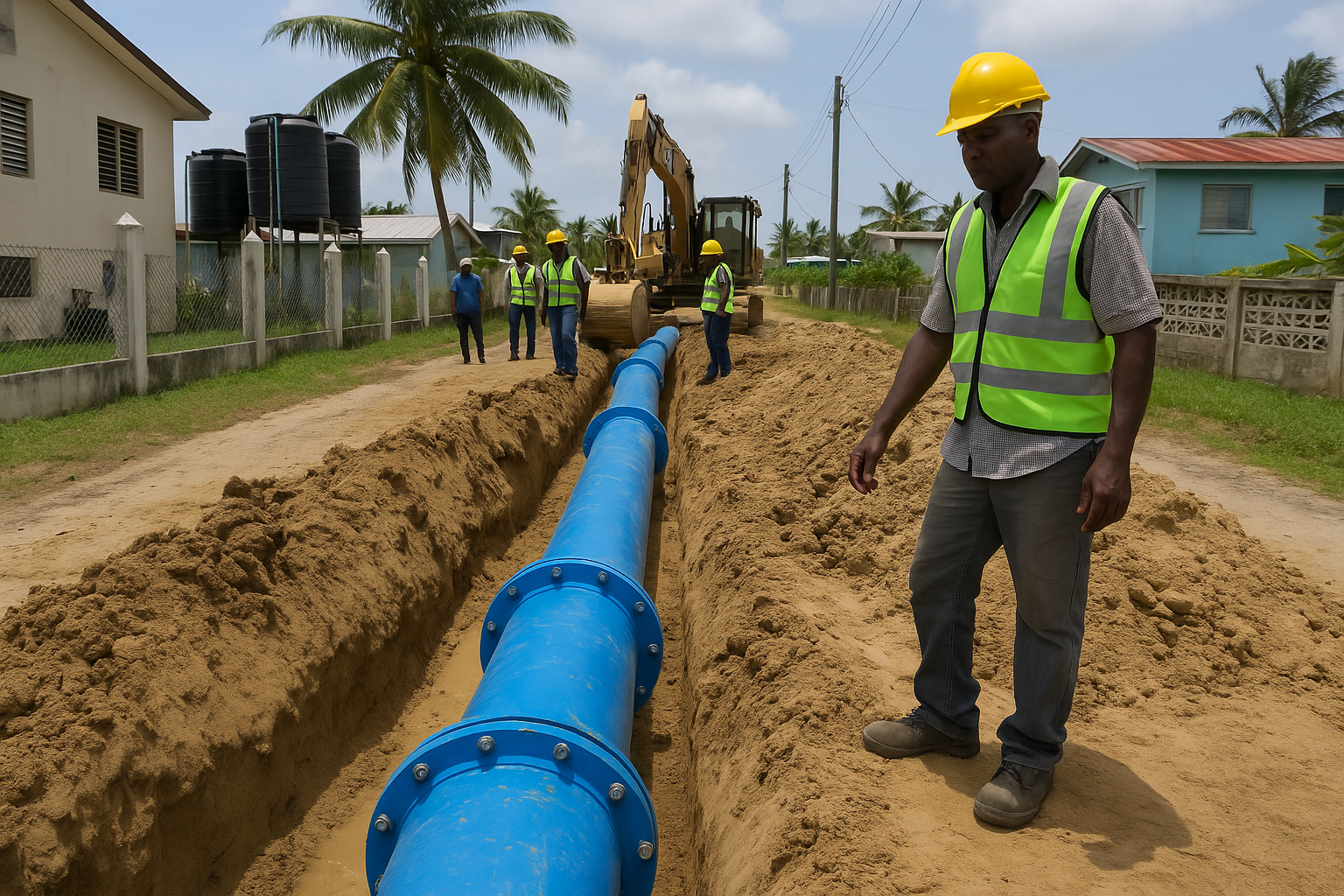DWS Launches Workshops on Revised National Water and Sanitation Standards
The revised Norms and Standards are grounded in South Africa’s constitutional mandate to provide adequate water and sanitation to all citizens.

- Country:
- South Africa
In a decisive move to strengthen South Africa’s regulatory framework governing water and sanitation, the Department of Water and Sanitation (DWS) is set to roll out a series of comprehensive workshops on the newly revised Compulsory National Water and Sanitation Services Norms and Standards. These updated regulations, gazetted on 6 June 2025, aim to enforce clear, measurable minimum requirements to ensure safe, reliable, and equitable access to water and sanitation services across the country.
Clear Standards Aligned with Public Health and Constitutional Rights
The revised Norms and Standards are grounded in South Africa’s constitutional mandate to provide adequate water and sanitation to all citizens. They reflect contemporary priorities including public health protection, environmental sustainability, and social equity, ensuring that these fundamental services meet consistent quality and availability benchmarks.
Among the pivotal provisions, all Water Services Authorities (WSAs) are now legally bound to guarantee basic water supply to every household within their jurisdiction. This supply must include a minimum of 6 kilolitres (6,000 litres) of safe drinking water per household per month, with availability for at least 358 days annually and a sustained flow rate of no less than 10 litres per minute.
Special Provisions for Vulnerable and Informal Communities
The DWS spokesperson, Wisane Mavasa, emphasised the regulations’ commitment to social equity by mandating that indigent households receive their allocated water quota free of charge, with billing only applied for usage beyond this baseline.
Recognising the challenges faced by informal settlements, the standards require WSAs to provide interim water supply services within 90 days of identifying such areas. These services must include communal standpipes positioned within 200 meters of all households, delivering water at the same minimum quantity, flow rate, and quality standards as formal urban areas. This provision aims to bridge the service gap experienced by some of the country’s most underserved communities.
Infrastructure Responsibilities and Quality Assurance
The regulations clarify infrastructure maintenance responsibilities: WSAs must manage and maintain water supply infrastructure up to the user connection point, while property owners are accountable for infrastructure beyond that boundary.
Critically, water quality is mandated to meet the South African National Standard (SANS) 241, which sets rigorous benchmarks for potable water safety. This standard ensures the consistent safeguarding of public health through the prevention of waterborne diseases.
Emphasis on Service Monitoring, Metering, and Education
Beyond supply standards, the revised norms place strong emphasis on operational monitoring and customer engagement. WSAs are required to install and maintain water meters accurately, ensuring timely repair or replacement to prevent loss and billing discrepancies.
Educational outreach forms a core component of service delivery. WSAs must conduct programmes focused on efficient water use, hygiene promotion, and sustainable groundwater management to encourage responsible consumption and conservation among communities.
Strategic Planning and Progressive Implementation
WSAs are tasked with developing and submitting detailed upgrade plans to elevate all households to the defined basic service level within two years of the regulations’ promulgation. These plans must be submitted to the Integrated Regulatory Information Management System (IRIS) for DWS approval within six months.
In cases where immediate compliance is unattainable, authorities must provide progressive implementation plans outlining clear steps and timelines for full adherence to the revised standards.
Historical Context and Regulatory Evolution
The Water and Sanitation Norms and Standards were originally gazetted in 2001 under the Water Services Act (Act 108 of 1997), establishing foundational mandates for water conservation, sanitation, service reliability, and infrastructure maintenance.
Following a 2017 review that aligned the norms with the National Water Act (1998), Water Services Act (1997), and the 2016 Sanitation Policy, the current revisions represent a significant modernization reflecting evolving societal needs and environmental challenges.
Nationwide Consultations and Stakeholder Engagement
The DWS has scheduled a national virtual consultation workshop to launch the rollout on Tuesday, 5 August 2025, followed by province-wide consultations from 12 August to 10 September 2025. These sessions aim to ensure broad understanding, acceptance, and practical implementation of the revised norms among all Water Services Authorities.
Stakeholders including government departments, Chapter 9 institutions, water boards, Catchment Management Agencies, professional bodies, and civil society organizations will have opportunities to engage actively in the consultation process.
Building a Sustainable Future for Water and Sanitation Services
These enhanced Norms and Standards underscore South Africa’s commitment to fulfilling its constitutional obligations, advancing public health, and promoting environmental sustainability through robust water and sanitation governance.
By setting enforceable minimum service levels and strengthening accountability mechanisms, the DWS aims to secure universal access to safe water and sanitation, ensuring dignity and improved quality of life for all South Africans.










